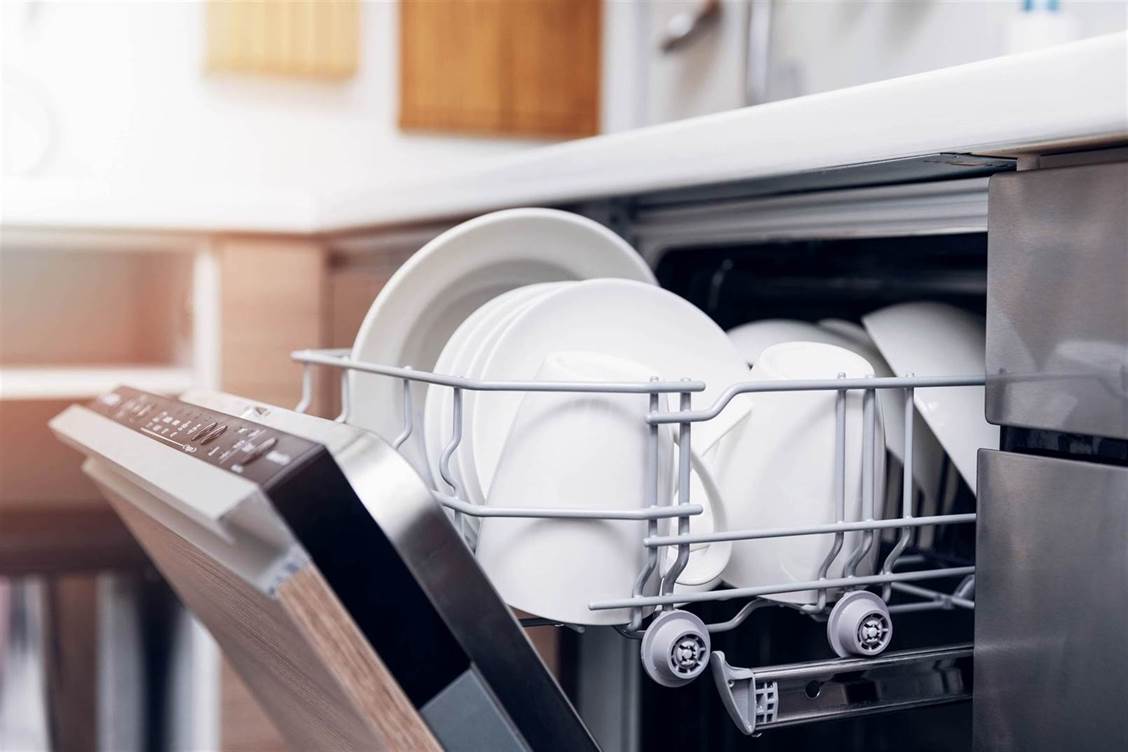Obey the “dishwasher safe” labels on your dishes. Always doublecheck if your kitchenware is okay to machine wash. When in doubt, don’t gamble. Most glassware is safe, but fragile items should be secured so they don’t shatter. Metal items like pots and pans are usually okay, but things like non-stick cookware will vary. Nowadays, most plastic containers will have a label clearing stating if they are safe to machine wash. If they are, put them on the top rack, and secure them between prongs. The last thing you want is to peel melted plastic off your elements and spinning arms. If stuff does get damaged or stuck, your machine could suffer and stop actually cleaning dishes. If that happens, contact a Winnipeg dishwasher repair service instead of trying your hand at DIY.
Load your dishwasher strategically to get the best cleaning results. Open your dishwasher and take a look in your machine, and use the layout to your advantage. If you have safety racks or folding panels, use them! Avoid leaning things against the door, especially near the detergent container. Always place all dishes upside down so they can be reached by the sprayers, and dirty water doesn’t pool in them. Sturdy things like pots and pans should go on the bottom, along with plates and bowls. Make sure that cutlery isn’t stuck together, or sticking through the holes in the utensil compartments, so it doesn’t come loose and fall out.
You probably don’t need to rinse your dishes before putting them in the dishwasher. Most dishwashers are much smarter than you think. Pre-wash cycles tell the sensors in your machine how dirty your dishes. Things like cycle length, and temperature might depend strictly on whether or not you rinsed off those crumbs. Think of it this way: if you rinse everything but a crusty muffin tin, your machine won’t bother working harder to clean off the tin when the other dishes are basically spotless. So if you’re frustrated by your machine’s inability to clean those few nasty dishes, try not to rinse or soak everything beforehand.
Rinse aid is a secret weapon. Rinse aid is a surfactant that prevents water droplets from forming and basically encourages water to drain. Because water doesn’t stick around, it doesn’t evaporate and leave spots that can be caused by minerals in the water. Maybe you haven’t noticed spots on your dishes, so why use rinse aid? You’ve probably opened your machine, long after the cycle was done, only to find that your dishes are somehow still soaked. Rinse aid helps to prevent that, meaning less hand drying and quicker unloading. If wet dishes bug you, give rinse aid a dry.
Dishwashers need to be washed too. You’ve probably noticed build up of food leftover stains. If it’s particularly bad, you may even smell the unpleasant stench of a dirty machine. Dishwasher cleaning solution and tabs exist for a reason. They’re inexpensive, quick, and foolproof.
Today’s lesson: treat your dishwasher right and it will do the same for you.

